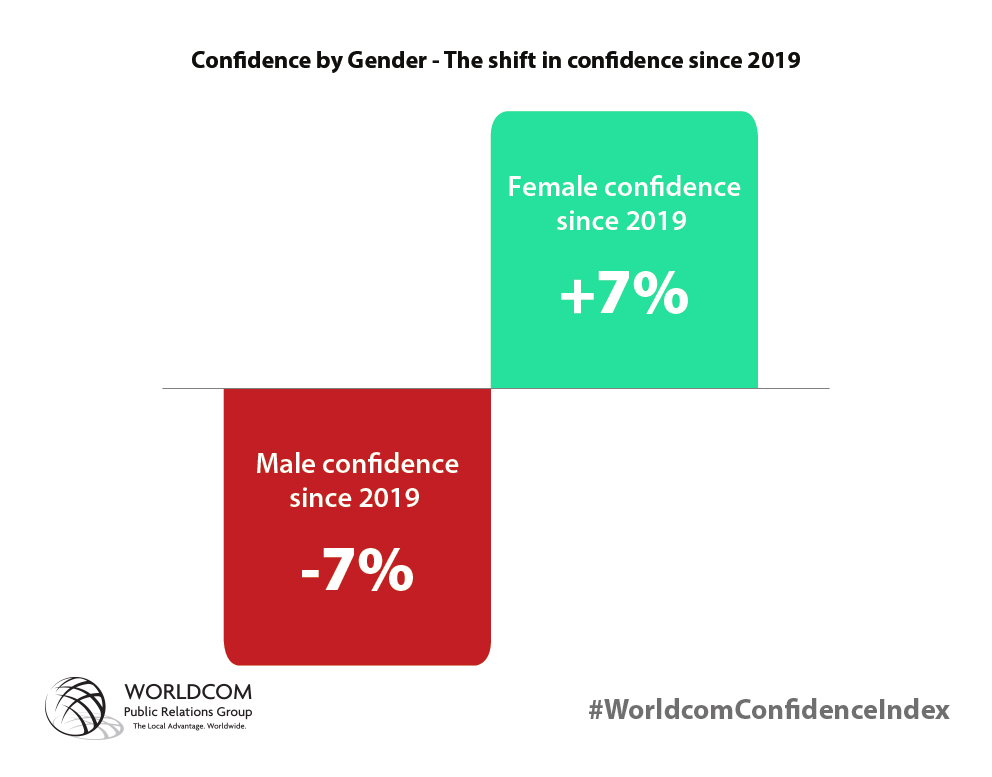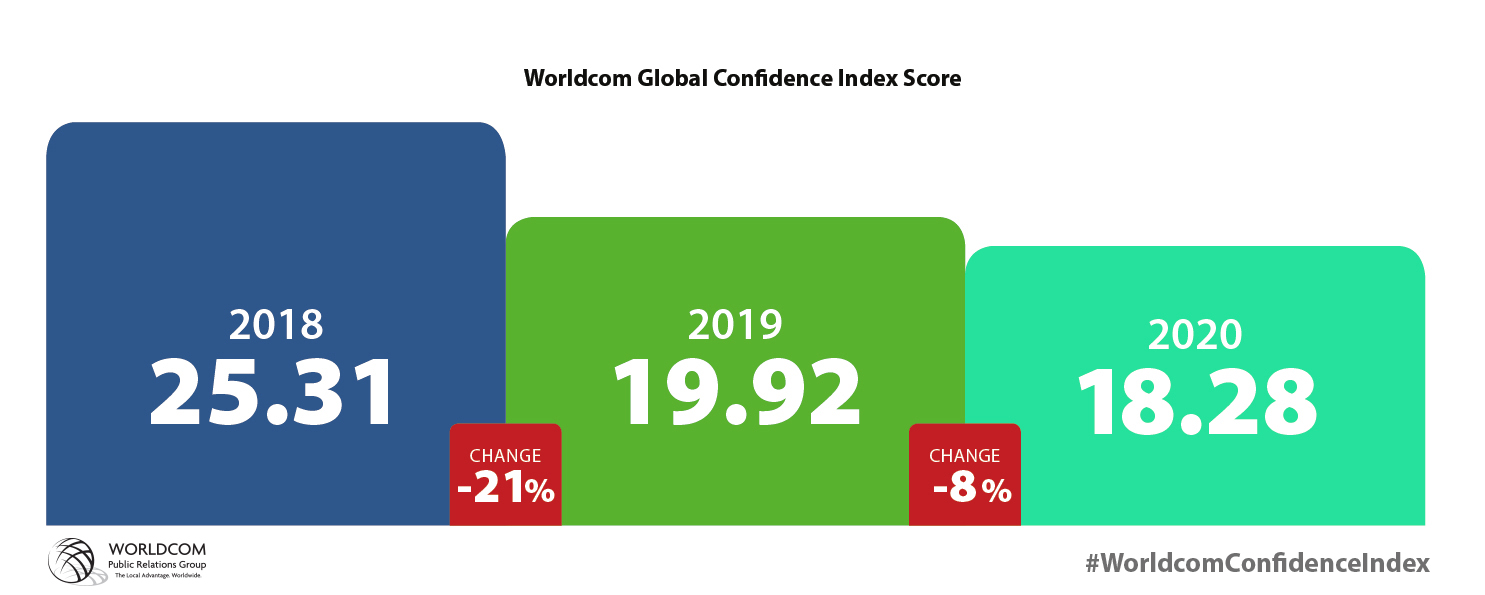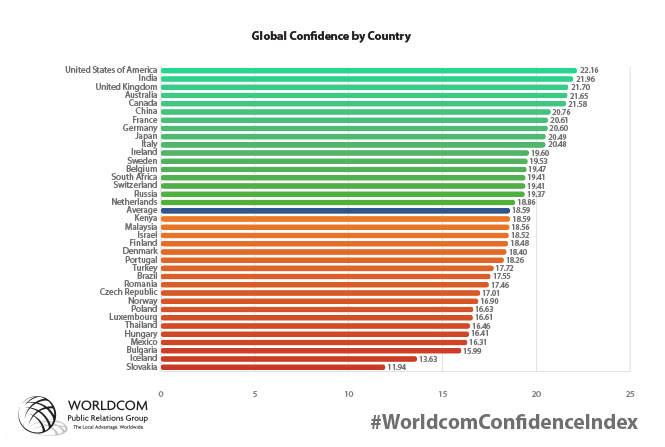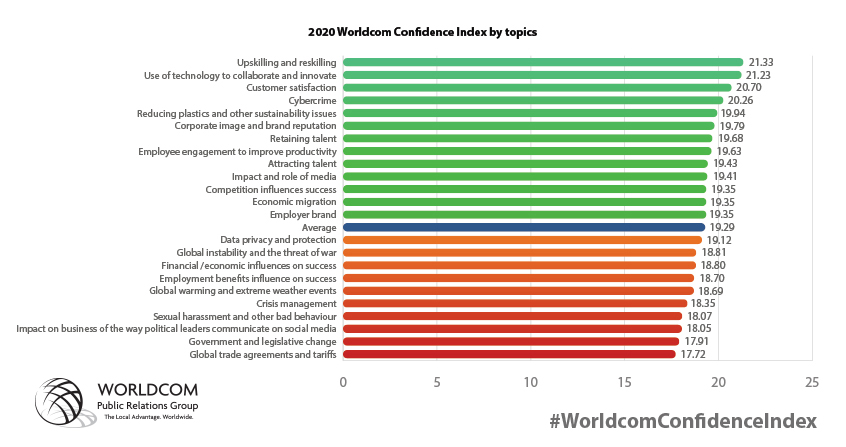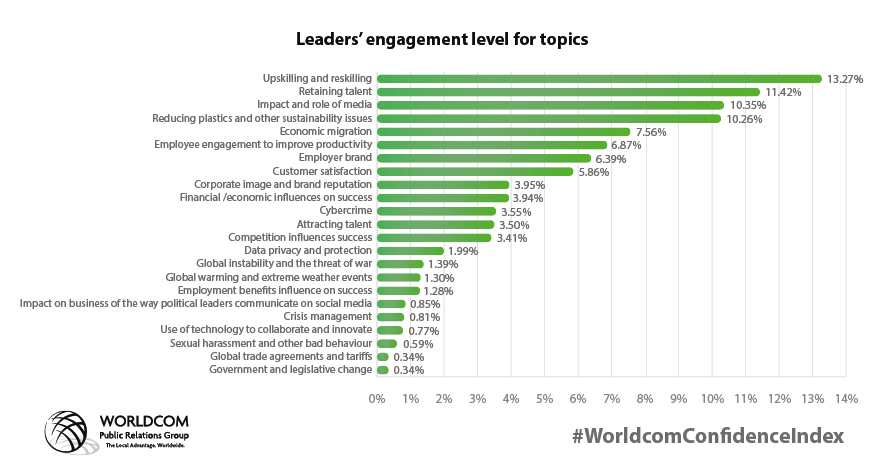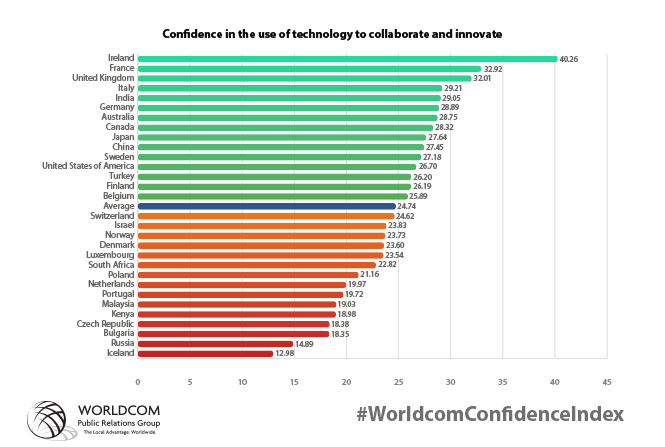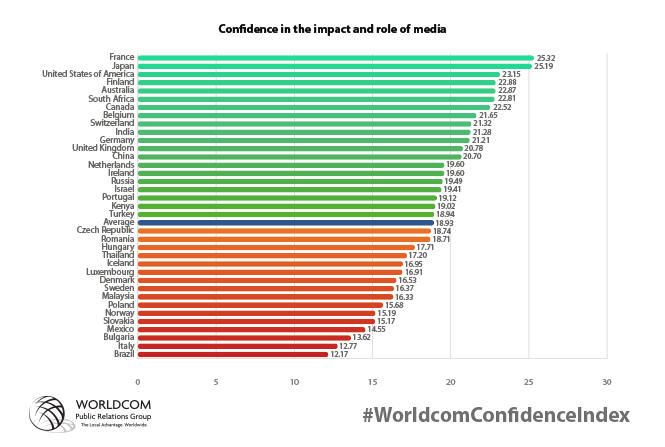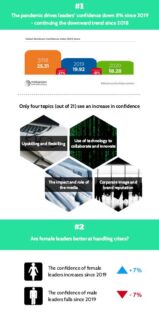Confidence Index 2020 Annual Report
What difference a pandemic makes
View More Worldcom Confidence Index Videos
The Worldcom Confidence Index (WCI) is a living study that uses a breakthrough approach powered by artificial intelligence (AI), which allows us to discover the issues that concern leaders globally – and their confidence levels in addressing them. Topics and sentiments are drawn from online conversations of over 54,000 CEOs and CMOs around the world.
The 2020 Annual Report provides data for 36 countries and comparisons for 15. It provides the results for September 2020 and comparisons with September 2019. This year we have also provided a snapshot of the range of expert advice available from over 2000 communications professionals in 115 cities around the world:
- Part Two of the report includes advice on how to solve the challenges of a world living alongside COVID-19
- Part Three provides advice on how to prepare to succeed in a world after COVID-19. This advice will enable you to focus your communications effort where it will deliver the most value.
Download the 2020 Worldcom Confidence Index Report (using the form at the top of the page) to find out What difference a pandemic makes.
The main report findings are summarized below. We encourage you to review the results globally, regionally and locally to inform your plans and guide your actions for 2021.
2020 GLOBAL TRENDS
Are female leaders better at handling crises?
The 2020 Worldcom Confidence Index identified that the confidence of global female business leaders has increased by 7% while male leader’ confidence decreased by 7% since 2019. As this covers the period of the pandemic, the result suggests that female leaders are more confident about handling a crisis than their male peers.
The pandemic drives overall global confidence of business leaders down 8%
In an analysis of online content from more than 54,000 chief executive officers (CEO) and chief marketing officers (CMO), the overall global confidence level declined by eight percent from the 2019 level. This continues the downward trend since 2018.
U.S. leaders rank most confident – with 26 percent rise in confidence since 2019
The confidence of leaders in the U.S. rose 26 percent from 2019, making them the most confident globally. However, this increased confidence was not experienced across all the business topics in the WCI. For example, U.S. leaders’ confidence in data privacy and protection fell by 23 percent.
The pandemic accelerates the need for an upskilled and reskilled workforce
The pandemic seems to have increased leaders’ confidence about where they should focus their efforts to upskill and reskill people. This topic is up 15
places on the WCI, from #16 in 2019 to #1 in 2020, making it the topic leaders are most confident about. It is now the only employee-related topic in the
top six, compared to three in the top six topics of confidence in 2019.
So, it is perhaps no surprise that upskilling and reskilling is also the topic that had the highest level of leader engagement in the last year. As jobs are transformed by the technologies of the fourth industrial revolution, more than one billion jobs (almost one-third of all jobs worldwide), are likely to be transformed by technology in the next decade, according to OECD estimates.
Confidence in the use of technology to collaborate and innovate shoots up
Confidence in the use of technology to collaborate and innovate topic has moved up 16 places to #2 in the confidence list. The COVID-19 emergency has
accelerated the use of online communications applications such as Zoom or Google Meet, with firms including Fujitsu and Twitter already announcing
plans to make remote work a permanent option, even after the pandemic.
Leaders in Ireland, which has earned the reputation for being the heart of ICT in Europe, are the most confident globally about the ability to use technology to collaborate and innovate. Leaders in Iceland are the least confident about this topic.
Communicating confidently with the media will be important to protecting brand image and reputation in 2021
Confidence in the impact and role of the media increased since 2019. In fact, this topic moved from last place in 2019 to #10 on the WCI in 2020. Leaders in France are most confident, while leaders in Brazil are most concerned about this topic.
Artificial Intelligence provides unrivalled view of trending topics and leaders’ confidence and concern in addressing them
As for the 2019 Worldcom Confidence Index, the 2020 study was able to operate at this scale, and in nine different languages, because the data was captured using a breakthrough approach powered by artificial intelligence (AI), which allowed us to discover the issues that concern leaders – and their confidence levels in addressing them. The chosen research firm, Advanced Symbolics Inc. (ASI), has developed a patented method of building representative samples and then capturing information with their AI tool. By using ASI’s AI tool called Polly, we have produced a truly global perspective on the business issues of the moment and where they rank in terms of leadership attention. We’ve also calculated the confidence index level for every topic and audience and identified how this changes around the world. This is incredibly valuable insight because it not only represents what leaders are talking about, rather than responses to questions, but also shows their confidence or concern in addressing each topic. It means you can compare your own thoughts with more than 54,000 of your global peers.

